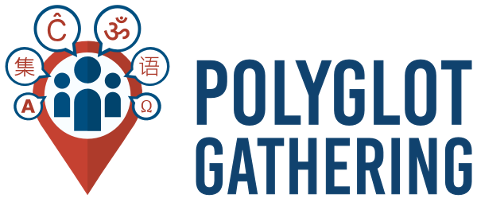Tatakelakuan persidangan
Semua hadirin, penceramah, penaja dan sukarelawan acara kami diwajibkan untuk bersetuju dengan tatakelakuan seperti di bawah. Para penganjur akan menguatkuasakan tatakelakuan ini sepanjang acara ini berlangsung. Kami mengharapkan kerjasama daripada semua peserta bagi memastikan suasana yang selamat untuk semua.
Perlukan bantuan?
Hubungi kami di abuse@polyglotgathering.com.
Versi pendek
Our conference is dedicated to providing a harassment-free conference experience for everyone, regardless of gender, gender identity and expression, age, sexual orientation, disability, physical appearance, body size, race, ethnicity or religion (or lack thereof). We do not tolerate harassment of conference participants in any form, nor do we tolerate any behavior that would reasonably lead to another event participant being made to feel unsafe, insecure, or frightened for their physical or emotional well-being. Sexual language and imagery is not appropriate for any conference venue, including talks, workshops, social events, chatrooms, Twitter and other online media. Conference participants violating these rules may be sanctioned or expelled from the conference without a refund at the discretion of the conference organisers.
Versi panjang
Harassment includes offensive verbal comments related to gender, gender identity and expression, age, sexual orientation, disability, physical appearance, body size, race, ethnicity, religion, sexual images in public spaces, deliberate intimidation, stalking, following, trolling, insulting or derogatory comments, personal or political attacks, sustained disruption of talks or other events and unwelcome sexual attention. This applies to both public and private messages.
Harassment comes in several forms. All of the following are harassment, but this is not a complete list.
- Asking “but where are you really from?” after someone says where they are from.
- Saying something disparaging to someone, particularly about a trait like sexuality, gender, religion, ethnicity, physical ability, etc.
- “Outing” anyone (telling individuals or groups that someone is LGBT without their explicit permission, whether in person or online). Don’t assume everyone knows, or that the person is ok with this being easily searchable information, even if they are open about it in person.
- Not respecting people’s pronouns. If someone asks to be called ‘he’, ‘she’, ‘they’, or equivalents in any language, do your best to do so.
- If you cannot, consider avoiding talking to/about the person. This includes when you refer to someone’s past: do not say things like “when she was a he”.
Participants asked to stop any harassing behavior are expected to comply immediately.
Sponsors and supporters are also subject to the anti-harassment policy. In particular, sponsors should not use sexualised images, activities, or other material.
If a participant engages in disruptive or harassing behavior, the conference organisers may take any action they deem appropriate, including warning the offender or expulsion from the conference with no refund.
If you are being harassed, notice that someone else is being harassed, or have any other concerns, please contact the organisers at abuse@polyglotgathering.com. Describe the situation briefly, include if possible a screenshot if the situation happened in writing, and we will do our best to react quickly.
The conference staff will be happy to assist participants experiencing harassment to feel safe for the duration of the conference. We value your attendance.
We expect participants to follow these rules during all conference activities, including talks and social events.
